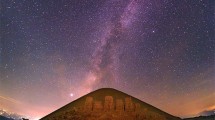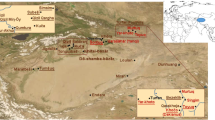Abstract
THE central interest of Huygens' life and work may be said to be his relations with Galilei and Descartes on one hand, and with Newton and the English men of science on the other. Descartes and Galilei were the brightest stars in the scientific firmament at Huygens' birth, and they influenced him in one way or another all his life. When he died in 1695 his own star, though still bright, too quickly paled beside the brilliance of the ascendant Newton. A study of Huygens' collected works leads to the view that claims may well be made for wider recognition of the importance of his work.
This is a preview of subscription content, access via your institution
Access options
Subscribe to this journal
Receive 51 print issues and online access
$199.00 per year
only $3.90 per issue
Buy this article
- Purchase on Springer Link
- Instant access to full article PDF
Prices may be subject to local taxes which are calculated during checkout
Similar content being viewed by others
References
"Horologium Oscillatorium", Part 4, Hypothesis 1.
Mouy, P., "Le Développement de la Physique Cartésienne 1646–1712" (1934).
Author information
Authors and Affiliations
Rights and permissions
About this article
Cite this article
BELL, A. Christian Huygens, 1629–1695. Nature 146, 511–514 (1940). https://doi.org/10.1038/146511a0
Issue Date:
DOI: https://doi.org/10.1038/146511a0
This article is cited by
-
THE CONCEPT OF ENERGY
Nature (1943)
-
Early Work on Periodic Motion
Nature (1941)
Comments
By submitting a comment you agree to abide by our Terms and Community Guidelines. If you find something abusive or that does not comply with our terms or guidelines please flag it as inappropriate.



